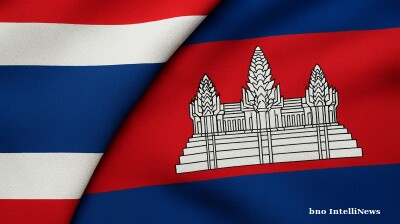Iranians returned to the polls on May 10 for a runoff election to fill the remaining seats in the nation’s parliament, following a strong showing by hard-line politicians in the initial March voting.
The 2024 Iranian local elections have had a dismal voter turnout of just 41%, marking the lowest participation rate since the 1979 Iranian revolution. According to exit poll data in the first round, 24,861,542 people exercised their right to vote. All eyes have been on Iranian officials' statements following the March 1 vote following increased opposition to the gerrymandered list of candidates. Heavyweight figures from reformists, centrists and conservatives have called the election unfree and unfair.
Voters in 22 constituencies are choosing 45 representatives from a slate of 90 candidates, which includes 15 moderates.
In Tehran alone, voters will decide among 32 hard-line candidates vying for 16 parliamentary seats.
The final results are anticipated by May 13, although outcomes for smaller constituencies may be known earlier.
Iran’s parliamentary body holds a secondary role in governance, with Supreme Leader Ayatollah Ali Khamenei retaining ultimate authority over crucial state matters.
State television broadcast Khamenei casting his vote early on May 10, where he highlighted the significance of the runoff, equating it to the initial election phase.
During the March elections, hard-liners secured 200 of the 245 contested seats, with moderates claiming the remaining 45 with many regular non-hardline candidates boycotting the entire process due to it being unfair and not free.
The election saw a turnout of only 41%, marginally below the record low of 42% in 2020.
Potential candidates are all pre-vetted by the country’s Interior Ministry, with credentials presented and checked to see if they meet the requirements of the strict Islamic system.
As for Iran's religious minorities, at least five people from the Assyrian, Armenian, Zoroastrian and Jewish communities will also be voted into their positions in the next parliament.
Two Armenian MP has been returned to parliament including Ara Shaverdian, from Tehran's Armenian community and Gagard Mansourian representing Armenians in Esfahan, was voted in with more than 82% vote of that community, according to the Armenian language newspaper Alik on March 2.
For Assyrians, Charlie Anooyeh Tekyeh was voted in, while Zoroastrians voted in a female MP Behshid Barkhodar for that community, the final minority vote was for the country's shrinking Jewish population with Homayoun Sameh Yeh Najafabadi voted back into his seat.
News

Cambodia and Thailand agree peace deal
Thailand and Cambodia have agreed a peace deal to mark the end of a conflict earlier in the year as Cambodian Prime Minister Hun Manet and Thai Prime Minister Anutin Charnvirakul attended a signing ceremony overseen by US President Donald Trump.

Trump would like to meet North Korea’s Kim Jong Un during Asia trip
The prospect of renewed diplomacy between Washington and Pyongyang has lingered since Kim’s remarks last month suggesting a willingness to speak to the outside world.

Bill Gates makes surprise Indian TV debut
In a move set to spark both intrigue and curiosity, Microsoft co-founder and philanthropist Bill Gates has made a cameo appearance on Indian television, entering the iconic drama series Kyunki Saas Bhi Kabhi Bahu Thi 2.

Queen Sirikit of Thailand dies
The death of Queen Sirikit of Thailand has marked the end of an era for the Thai monarchy. According to an official statement from the Bureau of the Royal Household of Thailand, Her Majesty died at 9.21 pm on October 24.




